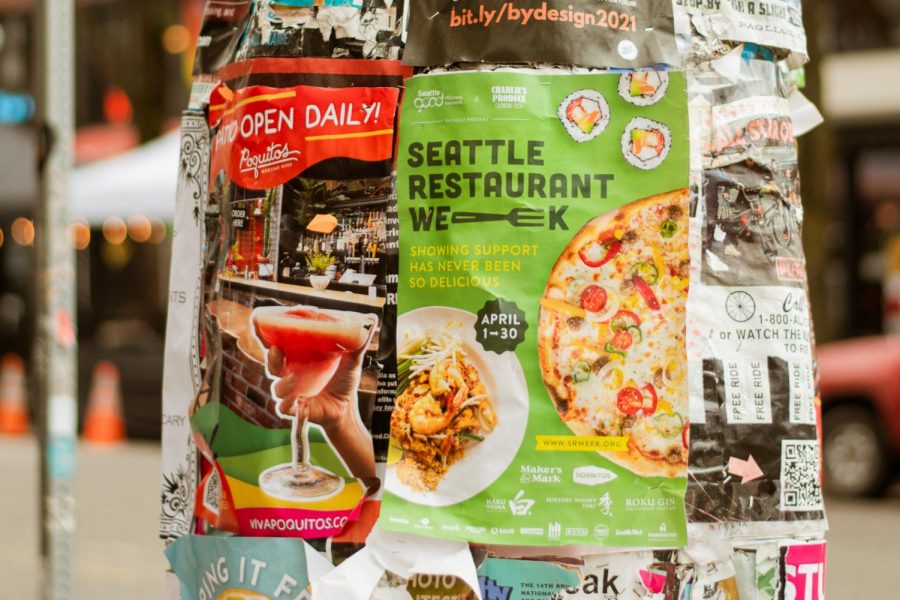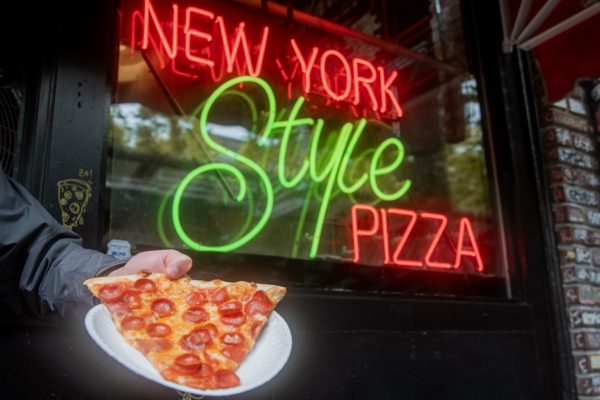Changes to Seattle Restaurant Week
Good deals for food are on every college student’s radar, and Seattle Restaurant Week offers a way to support local businesses in the process of finding inexpensive fare. The nonprofit organization, Seattle Good Business Network, runs the event twice a year.
This year, the spring event runs from April 1 through April 30, and local restaurants are offering $20 lunches and $35 or $50 dinners to patrons. Due to COVID-19, restaurants can provide alternate dining options such as takeout and delivery; those choices can be sorted through the searchable list on their website.
Andrea Porter, the program manager of Seattle Restaurant Week, explained the changes made to the event in the fall due to COVID-19. She noted the shifts in the event, and that this spring, the changes made last fall will continue for safety.
To participate in the event, restaurants can typically only provide three-course meals. This year, each restaurant individually chooses what is best for them. Spice Waala, for example, is participating but will not provide a three-course menu. Aakanksha Sinha, the co-founder and Chief Impact Officer at Spice Waala, explained that it is hard to have special items during the COVID-19 pandemic. The $35 dollar minimum dinner also poses a unique challenge.
“One of the things for our restaurant is that we are cheap eats, we are fast casual, so everything on our menu, people can eat for under $10, they can have a meal, so to come up with something of that price point would mean that they would be able to eat our entire menu,” Sinha said.
Restaurants this year can participate without any of the fees that it would normally take to be a part of the event. Porter explained that the decision came about because the restaurants have been struggling financially as it’s been a challenging year. Waiving fees means the event has to rely on sponsors, but Porter is optimistic about the support.
“We have a great group of sponsors that are really committed to supporting the restaurant community, so it has been exciting to see how many have stepped up in a big way to support the restaurant community,” Porter said.
Customers also get to directly support restaurant owners from marginalized communities. Seattle Restaurant Week added an ownership feature to the sorting page on their website in the fall, so customers can choose to support BIPOC, women or LGBTQ+ owned restaurants. Alison Deng, the owner of Biang Biang Noodles, supports this feature.
“We are proud to identify ourselves as women owned and LGBTQ+ owned. I think these groups just need more support, more voice to let people know ‘hey, we’re a minority group, but we still do business just like anybody, and we work hard to try to build a restaurant.’ Just to have this voice out and interact with customers, I think that’s a good opportunity,” Deng said.
Sinha is also optimistic about the feature, and emphasized the importance of sustained support for those businesses after the event comes to an end.
“We always talk about the fact that there should be sustained support. Having one day of support doesn’t do a lot. It’s really helpful and it’s nice that people come out to support, but having a sustained support base is much more helpful for these businesses because it’s much harder to start up, it’s much harder to do day-to-day business,” Sinha said.
One option for community support is participation in Seattle Restaurant Week’s buy one, give one program, which also happened in the fall. Participating restaurants give the customer an option to add an additional 10 dollars to their meal, and the money will go to either the restaurant’s community program or Good Food Kitchens. Deng is happy to participate in the program.
“For the past year, it was difficult for everyone, so if we could in any means give back to the community, it’s totally something that our restaurant would support,” said Deng.
If a restaurant is not participating in buy-one, give-one, they may still have a community program. Spice Waala falls into this category, and Sinha explained their hot meal program. Every Tuesday they provide 100 meals to Community Lunch and Mary’s Place, both are on Capitol Hill. They provide another 100 meals as donations for groceries through Asian Counseling & Referral Services.
With so many changes made to the event over the past year, how the event will look in the future is unclear. Porter said some of the changes will stay, but some might be modified. Seattle Restaurant Week will consider restaurant feedback before making their decisions.
“We’re definitely going to feel the pulse of the restaurant community after the event and as things continue to change” said Porter.
The future of the event may not be decided, but for now, Seattle Restaurant Week is one way to support the local community during uncertain times and enjoy great local food in the process.










